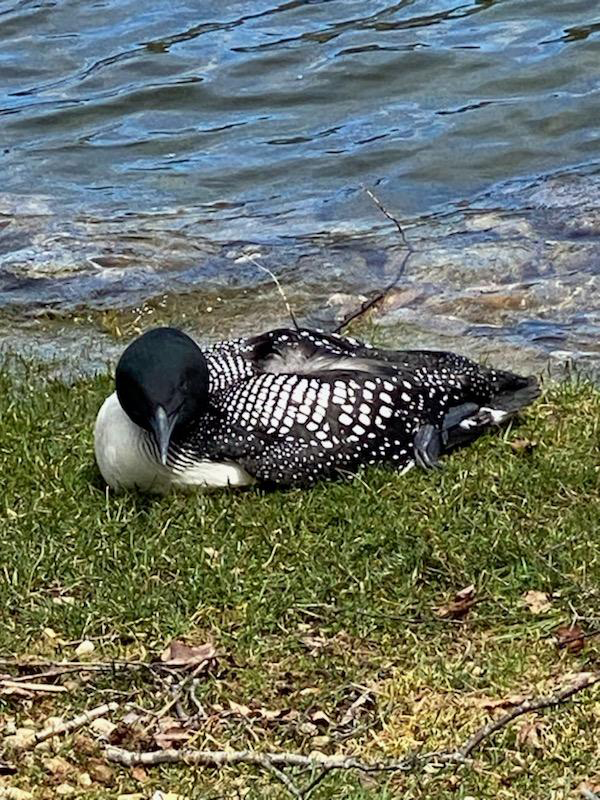
The Loon Preservation Committee (LPC) and the New Hampshire Fish and Game Department (NHFG) want to remind anglers about the ban on lead sinkers and jigs weighing one ounce or less for all freshwater in the state. The Loon Preservation Committee recently recorded the first loon mortality from lead tackle ingestion of 2024 on Merrymeeting Lake.
In 2023, a total of six loons were confirmed to have died in New Hampshire after ingesting lead sinkers and jigs. These loons died on lakes or ponds across the state, including Newfound Lake in Hebron, Deering Reservoir in Deering, Franklin Pierce Lake in Hillsborough, Lake Winnipesaukee in Meredith, Bow Lake in Strafford, and Little Squam Lake in Holderness. A loon will die from lead poisoning approximately two to four weeks after ingesting lead fishing tackle.
To address this issue and help anglers dispose of lead sinkers and jigs they can no longer legally use, LPC and NHFG have teamed up with 14 local shops to offer a Lead Tackle Buyback program. From now through the end of the year, anglers can exchange one ounce or more of illegal lead tackle (lead sinkers and lead-headed jigs individually weighing one ounce or less) for a $10 gift certificate redeemable at the following shops:
The Tackle Shack in Meredith and Newbury
Rocky’s Ace Hardware in New London
LL Cote in Errol
North Country Angler in North Conway
Ossipee’s Bait and Tackle in Effingham
Pawtuckaway Trading Post in Raymond
Squam Boat Livery in Holderness
The Loon Center in Moultonborough
Berry’s Bait in Alton
2 Bros. 24/7 NH Bait and Tackle in Nashua
Ray’s Corner Country Store in West Milan
Newfound Sales and Trading Post in Bristol
Lopstick Outfitters in Pittsburg
Full details of the buyback and participating shops can be found at www.loonsafe.org. The Loon Preservation Committee will also be operating a booth at Discover Wild New Hampshire Day on Saturday, April 20, at which 1 oz. or more of banned tackle can be exchanged for $10 cash.
Collection receptacles for old lead tackle can be found at all New Hampshire Fish and Game offices, numerous transfer stations, and other sites throughout the state. An interactive map of disposal sites is available at www.loonsafe.org.
The Loon Preservation Committee (www.loon.org) works to protect loons throughout the state as part of its mission to restore and maintain a healthy population of loons in New Hampshire; to monitor the health and productivity of loon populations as sentinels of environmental quality; and to promote a greater understanding of loons and the natural world.
The New Hampshire Fish and Game Department (www.wildnh.com) works in partnership with the public to conserve, manage, and protect the state’s fish, wildlife, and marine resources and their habitats; inform and educate the public about these resources; and provide the public with opportunities to use and appreciate these resources.